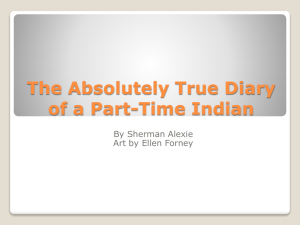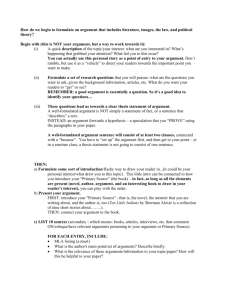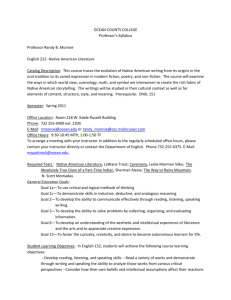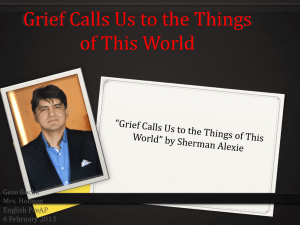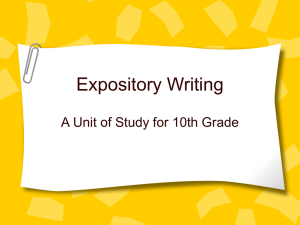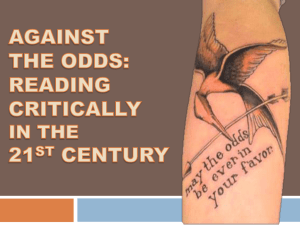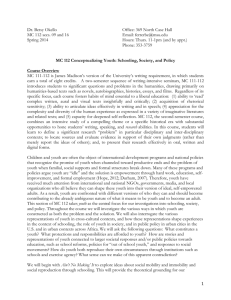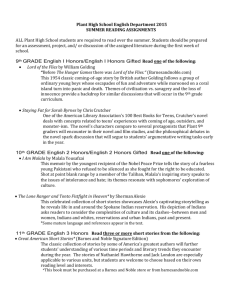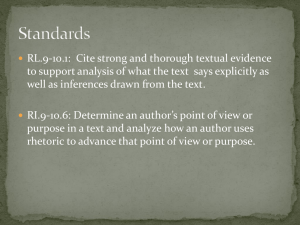The Irony of Truth Revision
advertisement
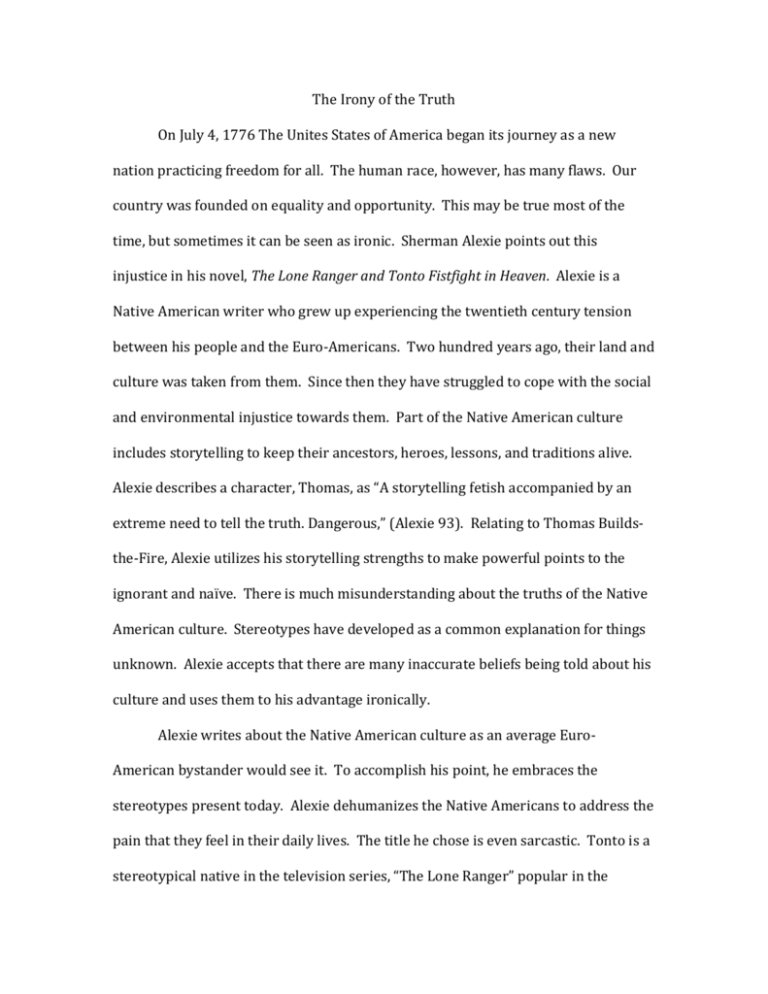
The Irony of the Truth On July 4, 1776 The Unites States of America began its journey as a new nation practicing freedom for all. The human race, however, has many flaws. Our country was founded on equality and opportunity. This may be true most of the time, but sometimes it can be seen as ironic. Sherman Alexie points out this injustice in his novel, The Lone Ranger and Tonto Fistfight in Heaven. Alexie is a Native American writer who grew up experiencing the twentieth century tension between his people and the Euro-Americans. Two hundred years ago, their land and culture was taken from them. Since then they have struggled to cope with the social and environmental injustice towards them. Part of the Native American culture includes storytelling to keep their ancestors, heroes, lessons, and traditions alive. Alexie describes a character, Thomas, as “A storytelling fetish accompanied by an extreme need to tell the truth. Dangerous,” (Alexie 93). Relating to Thomas Buildsthe-Fire, Alexie utilizes his storytelling strengths to make powerful points to the ignorant and naïve. There is much misunderstanding about the truths of the Native American culture. Stereotypes have developed as a common explanation for things unknown. Alexie accepts that there are many inaccurate beliefs being told about his culture and uses them to his advantage ironically. Alexie writes about the Native American culture as an average EuroAmerican bystander would see it. To accomplish his point, he embraces the stereotypes present today. Alexie dehumanizes the Native Americans to address the pain that they feel in their daily lives. The title he chose is even sarcastic. Tonto is a stereotypical native in the television series, “The Lone Ranger” popular in the 1950’s. He takes away the native’s identity again, two hundred years later after the genocide. Not only was this wrong the first time, but also this injustice has been overlooked and continues to need mending. German Nazis did the same thing during the Holocaust and the Euro-Americans came running to their rescue. The Native Americans were dehumanized similarly by the Euro-Americans and years later nothing has been done to help solve the tension and injustice. It is no longer seen as an issue. It is a constant mockery to the Native Americans. Alexie expresses this mockery: “It’s the small things that hurt the most. The white waitress who wouldn’t take an order, Tonto, the Washington Redskins,” (Alexie 49). America the free, sporting a Native American, human mascot. The term “redskins” is also a terrible racial slur. It seems a little incongruent. A mascot is not recognized with human qualities, it merely dehumanizes the people further. It is ignorant and Alexie points out all of these problems bluntly. One of the biggest problems Alexie revealed in Spokane is alcoholism, another stereotype. Victor’s parents were alcoholics. Julius Windmaker, the greatest basketball legend, lost his career to alcohol. Everyone drank. They struggled severely with alcohol. It tore them apart: “At the halfway point of any drunken night, there is a moment when an Indian realizes he cannot turn back toward tradition and that he has no map to guide him toward the future,” (Alexie 134). Claiming that all Native Americans are alcoholics is a harsh assumption. It changes their identity. The truth is overlooked, just as their identity is overlooked. Alexie exposed many other ideas throughout his story including poverty and anger. He opened nonchalantly with a violent tale of a hurricane. Victor’s drunken uncles fighting like they always do. They fight to the point where one almost dies. The hurricane that the Native American’s are always being swept away by includes anger, alcoholism, poverty, and everything else that has resulted from the past 500 years. Victor’s parents are also always in the midst of a fight. Everyone seems to be angry. This seems to be an exaggerated truth to make a point. They deserve to be bitter about their past and all the injustice that is served to them, however I cannot believe Native Americans are all this angry on a daily basis. Alexie also shows the social differences between the Native-Americans and the Euro-Americans especially in “Indian Education.” Alexie writes, “We carried them home, happy to have food, and opened the canned beef that even dogs wouldn’t eat,” (Alexie 177). The Native Americans have a very different culture, and they accept hardships unknown to many. Not all Native Americans are angry or starving or poor, but there are great deals of unwavering problems they face that have gone on for years. The truth never seems to be straightforward. Lies have developed and the truth has been lost among them. Alexie makes it clear that the truth has been lost for the Euro-Americans of this time, but just as much it has been lost for the Native Americans. Their traditions have been uprooted. They also have been lied to and cheated over the years. He wrote in “The Fun House,” “the doctor ties her tubes, with the permission slip my aunt signed because the hospital administrator lied and said proved her Indian status for the BIA,” (Alexie 81). The “permission slip” easily represents a false treaty. The amounts of injustice the Native Americans have dealt with over the years are immense, but Alexie successfully makes his point by full heartedly accepting the falsity in some common beliefs so much that he sheds light upon the real truth and injustice that occurs. The truth of the matter has been overlooked. Alexie writes, “Once, he owned a black-and-white television. He thought everything was much clearer then. Color complicated even the smallest events,” (Alexie 87). Alexie is expressing a powerful truth. He believes that the truth is simple. It is black and white. Once the truth is sugar coated, it covers the real truth. The truth is that the Native Americans have been dehumanized and unjustly treated, and this is wrong. It is simply said and needs to be changed. What was theirs and has been theirs for hundreds of years was given up without their permission. As a cultured Native American storyteller, Alexie is able to express this through his own tasteful irony. Works Cited Alexie, Sherman. The Lone Ranger and Tonto Fistfight in Heaven. 20th Anniversary Edition. New York: Grove Press, 2013. Print.
